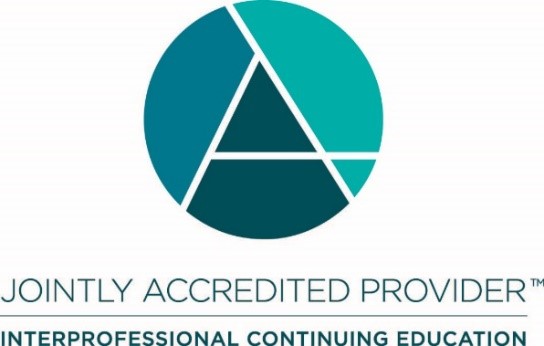Molecular Testing for Cutaneous Melanoma
Whereas some of these techniques have been routinely used for many years, such as comparative genomic hybridization (CGH) and fluorescence in situ hybridization for assessment of histologically equivalent lesions, and BRAF mutation testing for determining eligibility for BRAF inhibitor therapy, there is ongoing research and much controversy regarding many of the abovementioned molecular techniques. To try to address the many controversies regarding molecular testing, the NCCN Guidelines® for Cutaneous Melanoma now includes a lengthy section on the Principles of Molecular Testing. This covers molecular tests in development that are not yet recommended, and describes recommended tests, the contexts in which they should be employed, and how to use results to inform clinical management.
Target Audience
The program is designed to meet the needs and improve the competence and performance of the interprofessional oncology care team, including physicians, nurse practitioners, nurses, physician assistants, pharmacists, and other relevant health care professionals who manage the care of patients with cancer.
Learning Objectives
Following this program, participants should be able to:
- Describe clinical contexts in which molecular testing may be useful for management of cutaneous melanoma.
- Explain the challenges to using and interpreting molecular testing for diagnostic or prognostic purposes.
- Review molecular testing options for patients with stage III or stage IV disease, what material should be used for testing, and how results may inform treatment decisions.
Douglas B. Johnson, MD, MSCI
Vanderbilt-Ingram Cancer Center
Susan M. Swetter, MD
Stanford Cancer Institute
NCCN Continuing Education Disclosure Policy
It is the policy of NCCN that every 12 months, all faculty, moderators, activity planners and all internal planning staff participating in NCCN continuing education activities are expected to disclose any financial relationships with a commercial interest. In addition, all faculty presentations have been reviewed to ensure education is fair and balanced and that clinical content presented supports safe, effective patient care. Individuals who do not disclose relevant financial relationships will be disqualified from involvement in the CE activity as a content developer, planner, or presenter.
Definitions
NCCN continuing education considers financial relationships to create a conflict of interest when an individual has both a financial relationship with a commercial interest and the opportunity to affect continuing education content about the products or services of a commercial interest with which he/she has a financial relationship.
NCCN continuing education considers relevant financial relationships as financial relationships in any amount occurring within the past 12 months that create a conflict of interest. NCCN does not set a minimal dollar amount for relationships to be significant. Inherent in any amount is the incentive to maintain or increase the value of the relationship.
Faculty Disclaimers
All faculty for this continuing education activity are competent in the subject matter and qualified by experience, training, and/or preparation for the tasks and methods of delivery.
Faculty presentations may include discussion of off-label use. Faculty will disclose that the use in question is not currently approved by the FDA per the product labeling.
Faculty Disclosures
The faculty listed below discloses no relevant financial relationships:
Susan M. Swetter, MD
The faculty listed below discloses the following relevant financial relationships:
Douglas B. Johnson, MD, MSCI
Bristol-Myers Squibb Company: Scientific Advisor; Grant/Research Support
Catalyst Biopharma: Consulting Fee
Incyte Corporation: Grant/Research Support
Iovance Biotherapeutics, Inc.: Consulting Fee
Janssen Pharmaceutica Products, LP: Consulting Fee
Merck & Co., Inc.: Scientific Advisor
Novartis Pharmaceuticals Corporation: Scientific Advisor
OncoSec Medical Incorporated: Consulting Fee
NCCN Staff Disclosures
The NCCN Leadership listed below discloses no relevant financial relationships:
Robert W. Carlson, MD; Wui-Jin Koh, MD; Gary J. Weyhmuller, MBA, SPHR
The NCCN Activity Planning staff listed below discloses no relevant financial relationships:
Mike Abrams; Melissa Esplen; Mark A. Geisler; Kristina M. Gregory, RN, MSN, OCN; Kristin Kline Hasson; Rose Joyce; Karen Kanefield; Lisa Perfidio, MS; Shannon Ryan, CMP; Kathy Ann Smith, CHCP; Sarah Weinstein
The NCCN Clinical staff listed below discloses no relevant financial relationships:
Marian Birkeland, PhD; Anita M. Engh, PhD; Nicole R. McMillian, MS, CHES

In support of improving patient care, National Comprehensive Cancer Network (NCCN) is jointly accredited by the Accreditation Council for Continuing Medical Education (ACCME), the Accreditation Council for Pharmacy Education (ACPE), and the American Nurses Credentialing Center (ANCC), to provide continuing education for the healthcare team.
Physicians
NCCN designates this enduring material for a maximum of 0.75 AMA PRA Category 1 Credit™. Physicians should claim only the credit commensurate with the extent of their participation in the activity.
Nurses
NCCN designates this educational activity for a maximum of 0.75 contact hour.
Pharmacists
NCCN designates this knowledge-based continuing education activity for 0.75 contact hour (0.075 CEUs) of continuing education credit. UAN: JA4008196-0000-21-082-H01-P
Physician Assistants
NCCN has been authorized by the American Academy of PAs (AAPA) to award AAPA Category 1 CME credit for activities planned in accordance with AAPA CME Criteria. This activity is designated for 0.75 AAPA Category 1 CME credit. Approval is valid until March 1, 2022. PAs should only claim credit commensurate with the extent of their participation.
Available Credit
- 0.75 AAPA Category 1 CME credit
- 0.75 ACPE contact hours
- 0.75 AMA PRA Category 1 Credit™
- 0.75 ANCC contact hours
- 0.75 Participation
Required Hardware/software
To complete this activity, users will need:
- A device with an Internet connection and sound playback capability
- One of the two latest versions of Google Chrome, Mozilla Firefox, or Safari
- Internet Explorer is no longer supported
- Adobe Reader or other PDF reader software for certificate viewing/printing

 Facebook
Facebook X
X LinkedIn
LinkedIn Forward
Forward